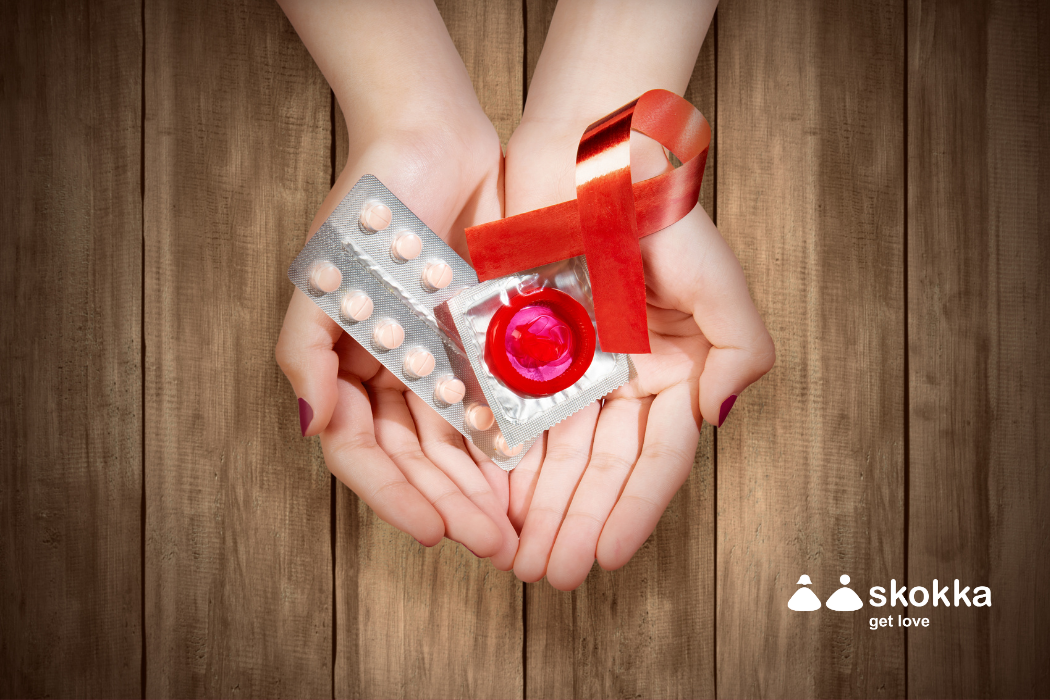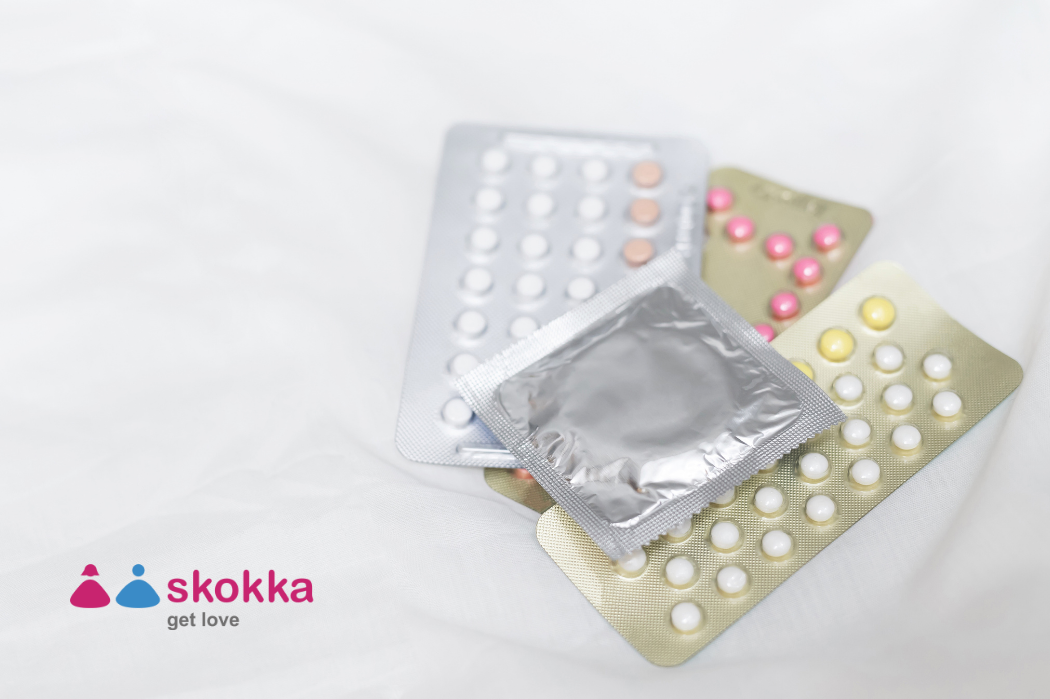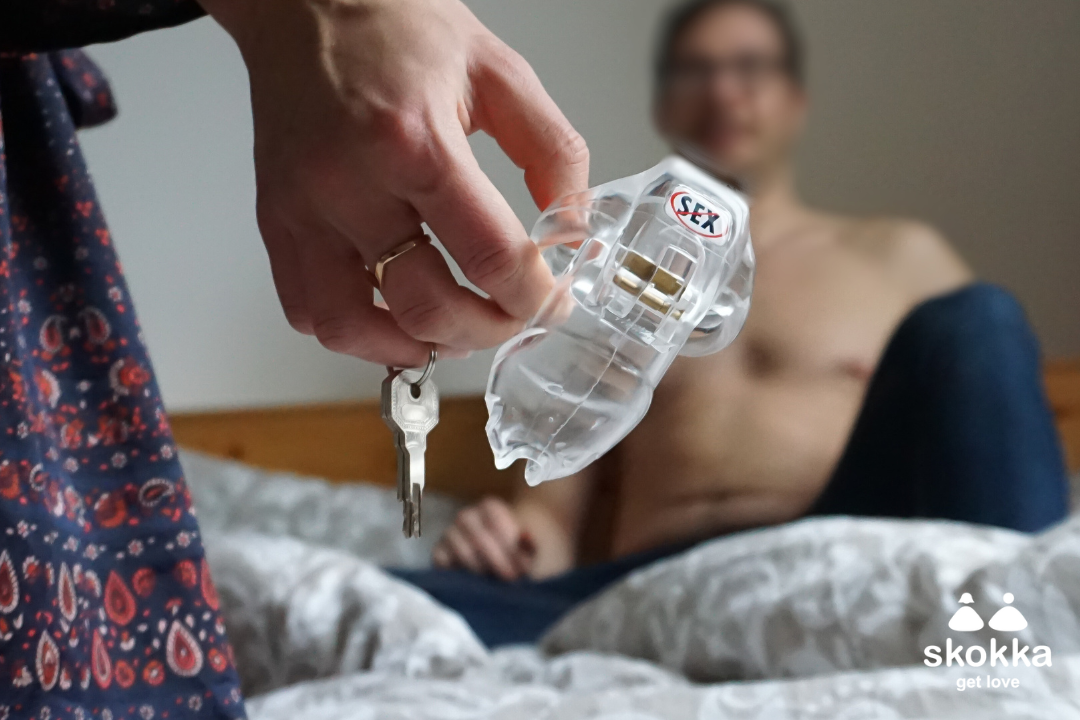In the field of sexual health, experts have relied on condoms as one of the most extensively utilized and highly recommended instruments for preventing sexually transmitted diseases. However, when specifically addressing HIV (human immunodeficiency virus), it is crucial to understand that the condom is not the sole protection option. Have you heard of PrEP and PEP?
Currently, science has unveiled highly effective allies to condoms, offering broader protection against the virus responsible for AIDS (acquired immunodeficiency syndrome). These new methods, known as PrEP and PEP, take center stage in our discussion in this article because here at Skokka, your health is our top priority.
Therefore, if you wish to grasp the essence of these innovative methods and distinguish the differences between them, stay tuned as we explore how to shield yourself from HIV and ensure safe encounters.

The Purpose of PrEP and PEP.
In 2020, the WHO reported that HIV diagnoses worldwide exceeded 1.5 million, according to published statistics. These figures underscore the importance of maintaining a focus on prevention, even in the most tempting circumstances, and avoiding succumbing to unprotected sexual relations or overlooking alternatives like PrEP and PEP. These methods serve as the barrier separating you from contracting HIV when engaging in sexual activities with individuals carrying the virus.
Understanding the Distinction between PrEP and PEP.
The difference between PrEP and PEP is quite clear: PrEP acts as a preventive measure, while PEP is an emergency response to combat the virus, preventing it from attacking the immune system. In essence, PrEP functions as a preventive measure taken prior to any potential contact with the virus, while PEP becomes effective following potential exposure to HIV.
Suppose you’ve had unprotected sexual intercourse or the condom broke at a crucial moment. In this scenario, the recommendation is to turn to PEP, a measure that prevents HIV, if present in the other person, from spreading through your immune system. However, if you consistently use condoms in your encounters but are aware of the risk of infection and desire an additional layer of security, PrEP is the appropriate choice.
How PrEP and PEP Work.
Taking the medication daily ensures that PrEP effectively hinders the spread of HIV throughout the body following unprotected sexual relations with a potentially infected partner.
In contrast, PEP combines antiretroviral medications (the same ones utilized in HIV treatment) with the goal of impeding the virus’s replication in the body after exposure.
How Long It Takes for PrEP to Take Effect.
The effects of PrEP begin to manifest after 7 days of using the medication for anal intercourse and 20 days for vaginal intercourse. It is important to note that during this period, it is not necessary to interrupt your encounters, as condom use remains indispensable.
When to Discontinue PrEP and PEP.
PrEP is recommended for individuals with a higher likelihood of coming into contact with the HIV virus, such as those with multiple sexual partners and men who have sex with other men. Therefore, when deciding to cease sexual encounters, it is safe to discontinue the use of the medication.
Medical Monitoring for PrEP or PEP Users.
For those using PEP, during the treatment period (28 days), it is mandatory to undergo medical monitoring to assess possible medication side effects. On the other hand, for those opting for PrEP, it is necessary to consult a doctor every 3 months and undergo examinations to verify health status.

Is It Possible to Forego Condom Use?
The condom acts as a protective barrier against various sexually transmitted infections (STIs), including gonorrhea and syphilis, not just HIV. Therefore, even while regularly using PrEP or PEP after sex, it is crucial to continue using condoms.
Side Effects Exist.
Like any medication, PrEP and PEP are not exempt from side effects. PEP may cause diarrhea, vomiting, fatigue, headaches, and nausea during treatment. On the other hand, PrEP effects may last up to three weeks and manifest as gas, abdominal pain, and changes in bowel movements.
Who is PrEP Indicated For?
PrEP use is recommended for individuals with a higher likelihood of coming into contact with HIV, such as serodiscordant couples (where only one partner is HIV-positive), sex workers, and men who have sex with other men.
If the Condom Breaks, Should I Use PrEP?
In this case, the recommended method is PEP, post-exposure prophylaxis. Within a timeframe of up to 72 hours, it is essential to visit a health center and initiate the medication, which lasts for 28 days.
Where to Access PEP.
To obtain PEP for free, visit a health center or an HIV/AIDS treatment center in your city and request the medication from a healthcare professional. Remember that when starting PEP treatment, you should return every three months for medication and regular examinations.
How to Use PEP.
After unprotected sexual intercourse or when the condom breaks or slips off, it is essential to visit a health center in your city or the nearest one within the first two hours or up to 72 hours and request the medication. The treatment lasts for 28 days and must be followed without interruptions. In the following link, you will find information on where to access treatment in your state. Check.
Conclusion.
In the current context of sexual health, HIV prevention goes beyond the conventional use of condoms. PrEP and PEP options emerge as powerful allies in the fight against the spread of this devastating virus. While PrEP stands out as a proactive defense against potential infections, PEP acts as a reactive measure to contain the spread of HIV after exposure.
At Skokka, our priority is to provide you, our reader, with the understanding needed to make informed decisions and take care of your sexual health responsibly. Faced with alarming HIV infection statistics, it is crucial to use all available tools to reduce risks.
Ultimately, the choice between PrEP and PEP will depend on your sexual behavior, individual needs, and the circumstances you find yourself in. Remember that your health is a precious asset that deserves to be protected at all costs, and HIV prevention options are here to support you in this crucial goal.







Condoms in the escort market - Skokka Official Blog
20 May 2024 at 12:18
[…] For more information on escort safety, explore other articles available on the Skokka blog, such as ‘Safety tips for escorts’ and expand your knowledge of safe practices in the industry. […]